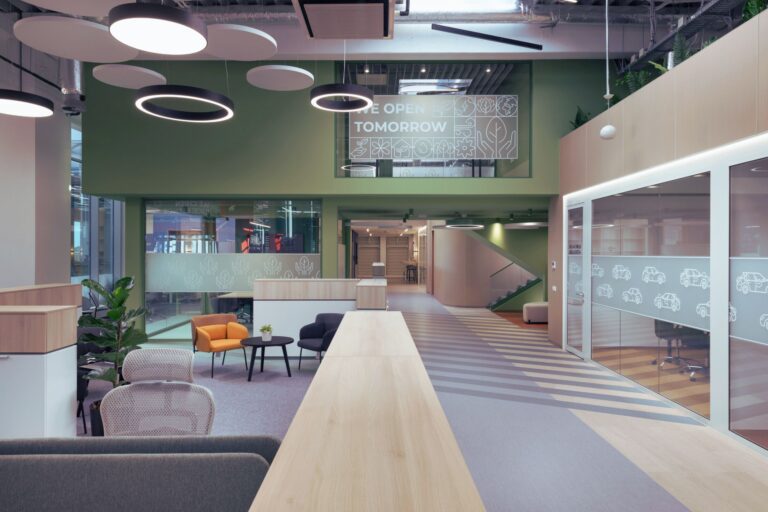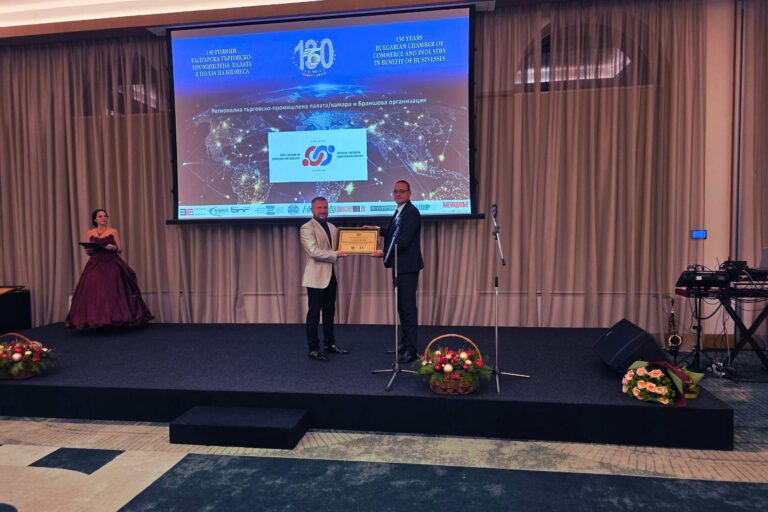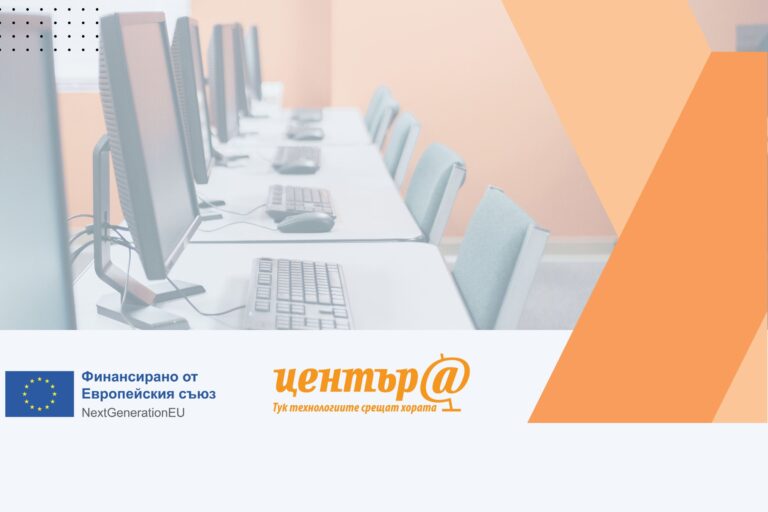Accelerating Digital Transformation in SMEs: An Introduction to 5 Key Technologies
In the dynamic world of business, digital transformation is a must. This process is particularly critical for small and medium-sized enterprises (SMEs), which need adaptive strategies to remain competitive. In this article, we'll look at five key technologies that can accelerate this transition and help SMEs thrive in the new era.
Artificial intelligence (AI) in the economic dynamics of Ruse
In the city of Rousse, which is a major economic hub in the region, artificial intelligence is a key technology that can contribute to even greater competitiveness of local SMEs. In leading sectors such as wholesale trade, especially in the fuel and chemical trade industries, AI can help companies analyze large volumes of data related to customer preferences, price trends and inventory levels. Applications of artificial intelligence in the industrial sector, especially in the production of machinery and equipment, can facilitate the automation of processes, contributing to optimal production efficiency.
Example: AI-powered chatbots can serve retail companies in Rousse as digital assistants, handling customer inquiries 24/7. This not only ensures seamless service, but also allows HR to focus on complex tasks, strengthening relationships with business partners and customers. Additionally, artificial intelligence can help courier and logistics companies in Ruse optimize delivery routes based on analysis of current and forecasted traffic and road conditions to provide fast and efficient service to their customers.
Quantum computing and opportunities for the Ruse region
Quantum computers open new horizons in information processing, providing unprecedented opportunities for solving complex economic tasks. In the context of Ruse's dynamic economic profile, these innovations can bring tangible benefits, especially in strategically important sectors such as trade, logistics and industry.
Example: In the logistics sector, quantum technologies can contribute to the optimization of supply chains. In a region where transport, warehousing and storage play a key role, fast and efficient analysis of options through quantum computing can reduce costs and optimize routes. The specific transportation needs of products such as solid, liquid and gaseous fuels as well as chemicals can be addressed more precisely and efficiently.
Additionally, in an industry that accounts for 36.5% of total sales revenue, quantum computers can help with more accurate and detailed analysis of manufacturing processes. This is particularly important for industries such as machinery, equipment and automotive component manufacturing.
With the expansion of services in Ruse, quantum solutions can also provide detailed analytical insights for sectors such as finance, accounting and consulting services, which would contribute to more accurate and efficient risk management, forecasting and planning.
In summary, quantum computing has the potential to transform a number of key business processes in Rousse, supporting the development of the region in the conditions of the modern global economy.
Augmented reality (XR) and its application in Ruse
In a strategically important economic environment like Rousse, XR technologies – bringing together Virtual Reality (VR), Augmented Reality (AR) and Mixed Reality (MR) – can have a revolutionary effect on the business sector.
Example: Imagine industrial enterprises specializing in the production of machinery and equipment or automotive parts that use XR for detailed training of their personnel without the need for real prototypes. This can reduce training costs and time while increasing workplace safety.
On the other hand, the trade sector, especially those related to the wholesale of fuels and chemicals, can use AR applications to show their customers how a product or facility can be integrated into their facilities or production lines before their actual installation or purchase.
Commercial companies in Ruse can develop AR applications that allow consumers to visualize how a product – whether it's furniture, technical equipment or a home appliance – will look like in their home or office, before actually purchasing it. In addition, the highly developed logistics sector and courier activities can use XR technologies to optimize processes, route planning and staff training.
In summary, in an area with such a dynamic and diverse economic profile as Ruse, the potential of XR technologies is huge and can change the way local businesses operate, innovate and compete in the market.
Green technologies in Ruse: A vital step towards a sustainable future
In a historical and industrial center like Ruse, where industrial activity is traditionally strong and the surrounding environment has been overloaded, green technologies become not only a modern choice, but also a moral obligation. Today, sustainable and responsible business is key to improving the quality of life of residents and protecting the region's natural resources.
Example: The use of intelligent energy management systems is of utmost importance for industrial leaders in Rousse, such as the machinery and equipment industry, the production of automotive parts and the chemical industry. Such systems not only help companies reduce their consumption of resources and reduce costs, but also actively contribute to the realization of eco-innovations in the region.
With its strong share in the transport, warehousing and storage sector, Rousse can also use green technologies to reduce emissions from vehicles, optimize logistics processes and improve the energy efficiency of warehouse spaces.
This new and sustainable direction will not only enable Rousse to continue its role as a regional leader in the economy, but also to offer a new, green and innovative vision for its future.
Cyber security in the economic context of Ruse
In the modern, rapidly developing business center of Ruse, cyber security is imposed as a permanent necessity. SMEs in the region, which contribute to high employment and investment growth, should be especially careful in investing in defensive measures against increasingly sophisticated cyber attacks. This is critical not only for traditional industries such as the chemical industry and engineering, but also for fast-growing sectors such as wholesale and logistics.
Example: In view of the significant growth in the trade of liquid and gaseous fuels and chemical substances, as well as the strategic location of Rousse as a logistics hub, regular staff training on safe practices in the digital space is becoming increasingly imperative. These trainings should also include specific scenarios related to the dangers that may arise when handling sensitive data related to freight transport and transactions with chemical products. In addition, investment in strong data backup and recovery procedures is vital to ensure operations can be quickly and safely resumed in the event of a cyber attack. This is especially important for companies in the logistics and telecommunications sector, which are key to the sustainable development of Ruse and its optimal connectivity with other regions.
These preventive measures can help SMEs in Ruse to protect their business and maintain the trust of their partners and customers, which is essential for maintaining stable and sustainable economic growth in the region.
These five key technologies form the basis for accelerating digital transformation in SMEs. The Rousse Chamber of Commerce and Industry is an active partner in supporting SMEs in this process, offering trainings, seminars and partnerships to help companies adapt to this dynamically changing world.






